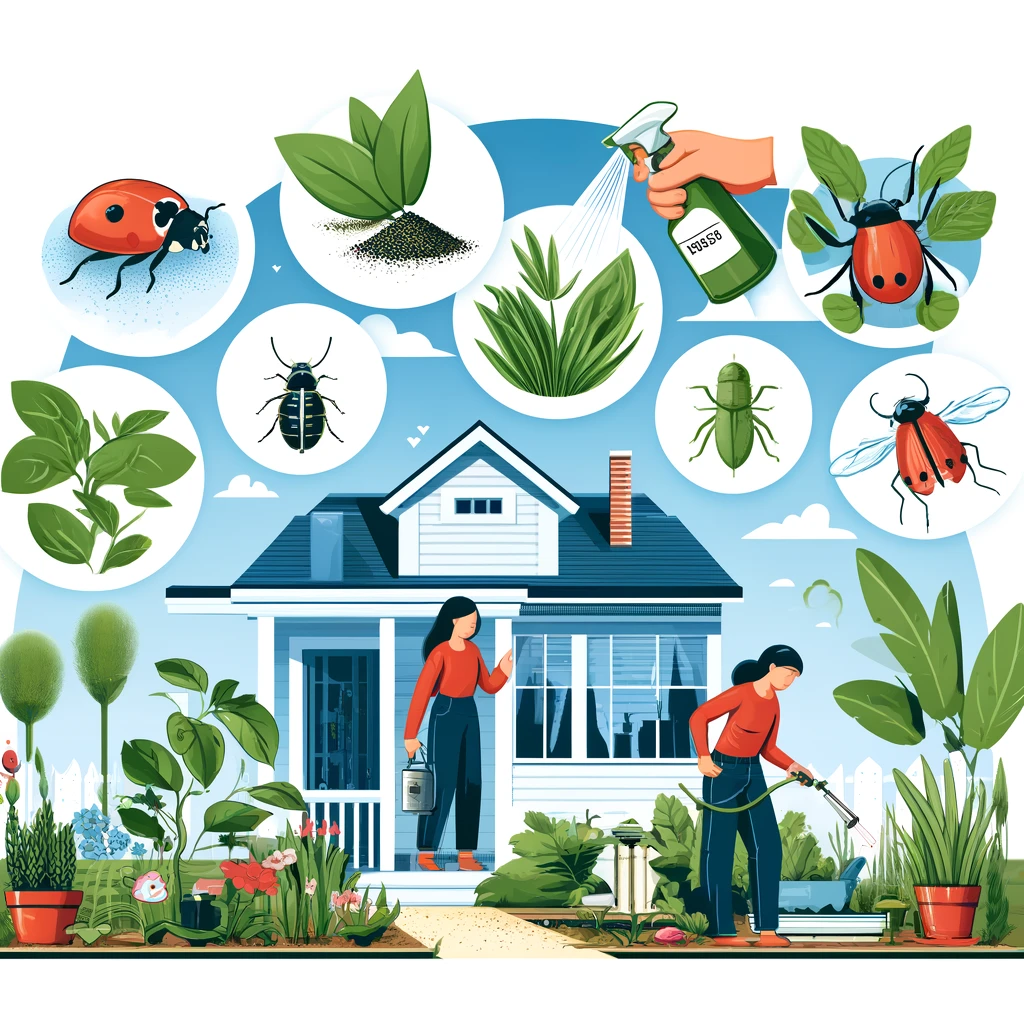Natural Solutions for Pest Control: Keeping Your Home Pest-Free the Eco-Friendly Way

Minimizing the use of chemical pesticides in your home doesn’t mean you have to live with pests. There are several effective, natural alternatives that can help keep your home pest-free while safeguarding your health and the environment. Here’s how you can implement natural pest control strategies.
1. Essential Oils
- Usage: Many pests are repelled by specific essential oils, making them excellent for natural pest control.
- Examples:
- Peppermint Oil: Deters spiders, ants, and mosquitoes.
- Lavender Oil: Repels moths, fleas, and flies.
- Eucalyptus Oil: Effective against flies and mosquitoes.
- Application: Mix a few drops with water and spray in affected areas or use diffusers to disperse the scent.
2. Diatomaceous Earth
- What It Is: A powdery substance made from the fossilized remains of tiny, aquatic organisms called diatoms.
- How It Works: The fine powder absorbs lipids from the waxy outer layer of insects’ exoskeletons, causing them to dehydrate and die.
- Application: Sprinkle diatomaceous earth around areas where pests are found, like under sinks, along baseboards, or outside around the foundation.
3. Vinegar
- Usage: Vinegar is a strong repellent for many types of insects due to its acetic acid content.
- Application: Mix equal parts of water and vinegar and use it to wipe down countertops, sinks, and other areas where pests frequent. It can also be used to clean out pantry shelves and remove scent trails for ants.
4. Plant-Based Repellents
- Function: Certain plants naturally repel various pests and can be used strategically around your home.
- Examples:
- Basil: Repels flies and mosquitoes.
- Lemongrass: Contains citronella, which is a powerful mosquito repellent.
- Marigolds: Known to deter aphids, mosquitoes, and even rabbits.
- Usage: Plant these in gardens or keep potted plants near entry points to naturally keep pests away.
5. Biological Controls
- What It Is: Using natural predators to control pest populations.
- Examples:
- Ladybugs: Eat aphids, mites, and other small insects.
- Praying Mantises: Feed on a wide variety of insect pests.
- Implementation: Purchase these beneficial insects from garden centers or online and release them into your garden as a natural pest control method.
6. Neem Oil
- Benefits: An effective natural pesticide that disrupts the life cycle of pests at all stages — eggs, larvae, and adults.
- Application: Mix neem oil with water and a mild soap and spray on affected plants. It’s especially useful for garden pests and safe for plants.
Conclusion: Embracing natural pest control methods not only helps reduce the chemical load in your environment but also promotes a healthier living space. These eco-friendly solutions can be surprisingly effective when applied consistently and correctly. For persistent problems, consulting a professional who specializes in natural pest control can provide additional guidance and treatment options.
